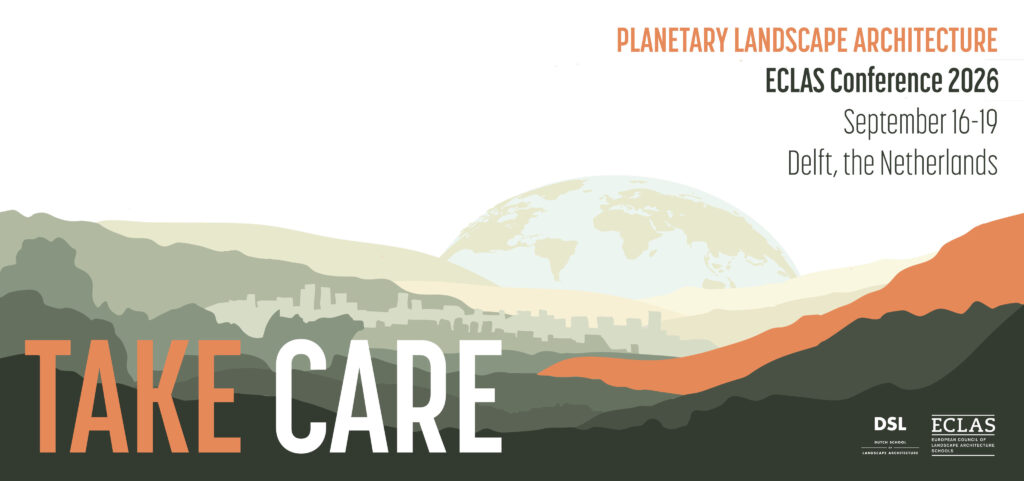European Landscape Consortium
A milestone moment in Florence
On 28 October 2025, representatives from across Europe gathered in Florence to celebrate the 25th anniversary of the Council of Europe Landscape Convention. For many in our field, this convention remains a quiet giant: the only international treaty devoted to the protection, management, and planning of landscapes in all their forms. It treats landscape not as scenery, but as the living interface between people and place. It covers everything from mountain ecosystems to agricultural territories, from historic gardens to urban peripheries, and it places public participation at the core of its vision.
This anniversary arrives at a moment when Europe is confronting the interlinked crises of climate change, biodiversity loss, and pollution. The Florence Ministerial Conference underscored that landscape quality is inseparable from human rights,democracy, social cohesion, and environmental justice. In this sense, the landscape lens has never been more relevant.
The conference culminated in the adoption of the 2025 Florence Declaration, which reaffirms the strategic value of the Convention and charts a stronger, more action-oriented direction for the decades ahead. The declaration calls for deeper cooperation among states, stronger integration of landscape principles into national policies, and explicit recognition that landscapes are essential to climate adaptation, mitigation, and ecological restoration.
ECLAS and the LE:NOTRE Institute represented in Florence
ECLAS and the LE:NOTRE Institute were represented at the Ministerial Conference by Ingrid Sarlöv Herlin (SLU Alnarp, Sweden). Here is her short report from the event:
“discussions focused on strengthening landscape protection, sustainable management, and planning across Europe. The conference highlighted the vital link between landscape quality, human rights, and democracy in addressing the triple planetary crises of climate change, pollution, and biodiversity loss.
Over the past 25 years, the Convention has advanced legal and policy frameworks, safeguarded cultural and natural heritage, and deepened cross-sectoral cooperation. The conference concluded with the 2025 Florence Declaration, reaffirming the Convention’s strategic value and promoting stronger international collaboration and integration of its principles into national policies. Ingrid Sarlöv Herlin especially appreciated that the declaration prominently acknowledges culture-based solutions—rooted in tangible and intangible heritage—as key to climate adaptation, mitigation, and ecosystem restoration.”
Her report points to a clear shift: landscape is increasingly understood as a democratic and cultural resource, not just an environmental one. This is highly aligned with the work carried out across our academic community.
The European Landscape Consortium’s call to the EU
ECLAS and LE:NOTRE are founding members of the European Landscape Consortium (ELC), a coalition of European landscape organisations that also includes IFLA Europe, IALE‑Europe, IALA, the Landscape Research Group and UNISCAPE.
In September 2025 the Consortium sent a joint letter to Members of the European Parliament, the European Commission, the Council of the EU and other institutions, urging a strong EU policy response on landscape. The letter highlights that landscape is a living fabric connecting climate resilience, biodiversity, health, social cohesion, culture and economy, and it calls for the EU to “put landscape at the heart of EU policy”.
The statement highlights a crucial mismatch: although landscapes are central to climate resilience, biodiversity, cultural identity, health, and territorial cohesion, landscape thinking remains largely absent from EU legislation and strategy.
To address this, the European Landscape Consortium calls on EU institutions to:
Develop an integrated approach to landscape for the European Union, analogous to that on cultural heritage, which recognises the mutual interaction between landscape and EU policy, and create an EU Expert Group on Landscape to advise the Commission and strengthen cross-DG policy integration.
Establish a cooperation platform with the Council of Europe on landscape to align efforts and share best practice, and engage with the relevant EU Parliament committees in hearings and joint initiatives.
Mainstream landscape into EU flagship initiatives, such as the Nature Restoration Law, the Green Deal, Climate Adaptation, and the New European Bauhaus, as well as existing cooperation programmes such as URBACT IV, Erasmus, EUI and Creative Europe, and include strategic approaches to landscape in the core remit of the European Environment Agency and of ESPON.
Make landscape a key policy instrument in the next Multi-annual Financial Framework and integrate landscape in EU research programmes such as Horizon Europe and future framework programmes, to provide the necessary evidence base for policy making.
Promote cross-border and transboundary programmes, using landscape as an integrating factor for cohesion, reconciliation, and sustainable development, while strengthening democratic participation through landscape literacy by embedding education, awareness-raising, citizen engagement and capacity building into EU programmes.
This is a strong and united message from Europe’s leading landscape organisations: the EU cannot afford to overlook landscape any longer.
Why this matters now
We all feel how quickly our policy landscape is shifting. In fast political times, major anniversaries can either pass unnoticed or become catalysts for change. The 25th anniversary of the Landscape Convention is one of those rare openings. It offers a chance to reassert the relevance of landscape research, planning, and education in shaping Europe’s just and sustainable transition.
For our community, this is not just an institutional milestone. It is a call to reaffirm the societal importance of what we study and teach every day.
Our call to action
We are asking everyone in the ECLAS and LE:NOTRE networks who has contact with national ministries, Members of the European Parliament, or relevant committees to forward the European Landscape Consortium statement and support this urgent push to put landscape at the heart of European policymaking.
The more voices reinforce this message, the harder it becomes for EU institutions to ignore the human, ecological, and cultural dimensions of Europe’s landscapes.
Let’s use this anniversary to move the Convention’s principles from the margins into the center of European policy. Landscape is where European policy meets real life. If we want it to become visible, we need to speak up.
Ellen Fetzer,
Chair of the LE:NOTRE Institute Board
on behalf of the European Landscape Consortium
